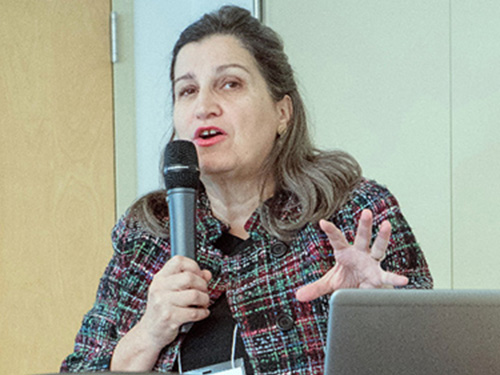Latin America’s two largest economies are now governed by populists. Both Andrés Manuel López Obrador (AMLO) and Jair Bolsonaro are political renegades, promising to up-end the political status quo after a period of unprecedented corruption revelations and intolerable crime levels.
Both leaders tapped into an angry sentiment that helped them stand apart from the mediocre leadership of established parties, the PT in Brazil and the PRI and PAN in Mexico. But the similarities end there.
Judging by capital flows, the monied classes endorse Brazil’s Bolsonaro and worry about Mexico’s AMLO. Bolsonaro has a plan and the political support to pass pension reform, long considered the third rail of Brazilian politics. In Davos, Bolsonaro reiterated his commitment to simplify Brazil’s tax codes and drastically cut the time it takes to start a business.
Brazil’s government payroll will be aggressively shrunk with the closure of several ministries and the country will privatize a controlling interest in Electrobras, as well as up to 20 airports, led by the one that serves Curitiba. New concessions will be issued to build rail lines and ports to facilitate raw material exports. The national content laws that stymie investor interest in Brazil’s offshore oil resources will also be reformed.
Together, these announcements have attracted waves of new capital to Brazil, driving the Bovespa to new records and strengthening the Real – boosting the acquisition power of every Brazilian. Notsurprisingly, an IBOPE poll conducted at the time of his inauguration found that 75% of Brazilians approve of Bolsonaro and 65% believe that he can revive Brazil’s economy in a matter of months.
To placate his base, which includes a large contingent of evangelicals, Bolsonaro regularly employs strong language against political correctness, homosexuals, and indigenous land rights. Those remarks are offensive and regressive, but spoon-feeding Bolsonaro’s voter base has few economic consequences for Brazil. The exact opposite can be said of AMLO.
AMLO’s first major policy decision as President was to cancel the $13 billion project to construct a new airport in Texcoco, east of the overcrowded Benito Juarez airport. At first glance, this appeared to be a concession to his voter base, which includes students, farmers, and green-minded urban voters. But a closer look reveals a more worrisome tendency.
Structured as a transparent referendum, the quickly assembled and questionably counted plebiscite included less than 2% of eligible Mexican voters. Santa Lucía, a military base, is favored by AMLO and lobbied heavily by construction firm Grupo Riobó, which, curiously, was contracted to produce an analytically dubious feasibility study. The Montreal based International Air Transport Association (IATA) has publicly declared that Santa Lucía and Benito Juárez airports cannot technically co-exist because they are too close to each other.
AMLO took a significant pay reduction and then forced a 60% wage cut on the five Central Bank governors. That prompted one governor to resign ahead of schedule, on top of the regularly scheduled rotation of another governor. In two years, AMLO will replace a third governor and thereby take control of Mexico’s most important independent economic institution.
The rational voices of advice that guided AMLO through his campaign are increasingly sidelined by the man who controls the Presidency and via coalition controls the Senate and the House.
Mexico’s billionaires, who underwrote so much of Mexico’s industrial expansion over the last two decades, are quietly but quickly moving their remaining Mexico-based assets offshore. Luxury home pricing in Mexico City has dropped an estimated 20% since October 2018. A sense of gloom is taking hold among the elite in Mexico, even while AMLO’s approval ratings continue to climb. LT
JOHN PRICE, managing director of Americas Market Intelligence and a 25-year veteran of Latin American competitive intelligence and strategy consulting. [email protected]
This opinion piece was published in the Sustainability issue of Latin Trade, first quarter 2019.



